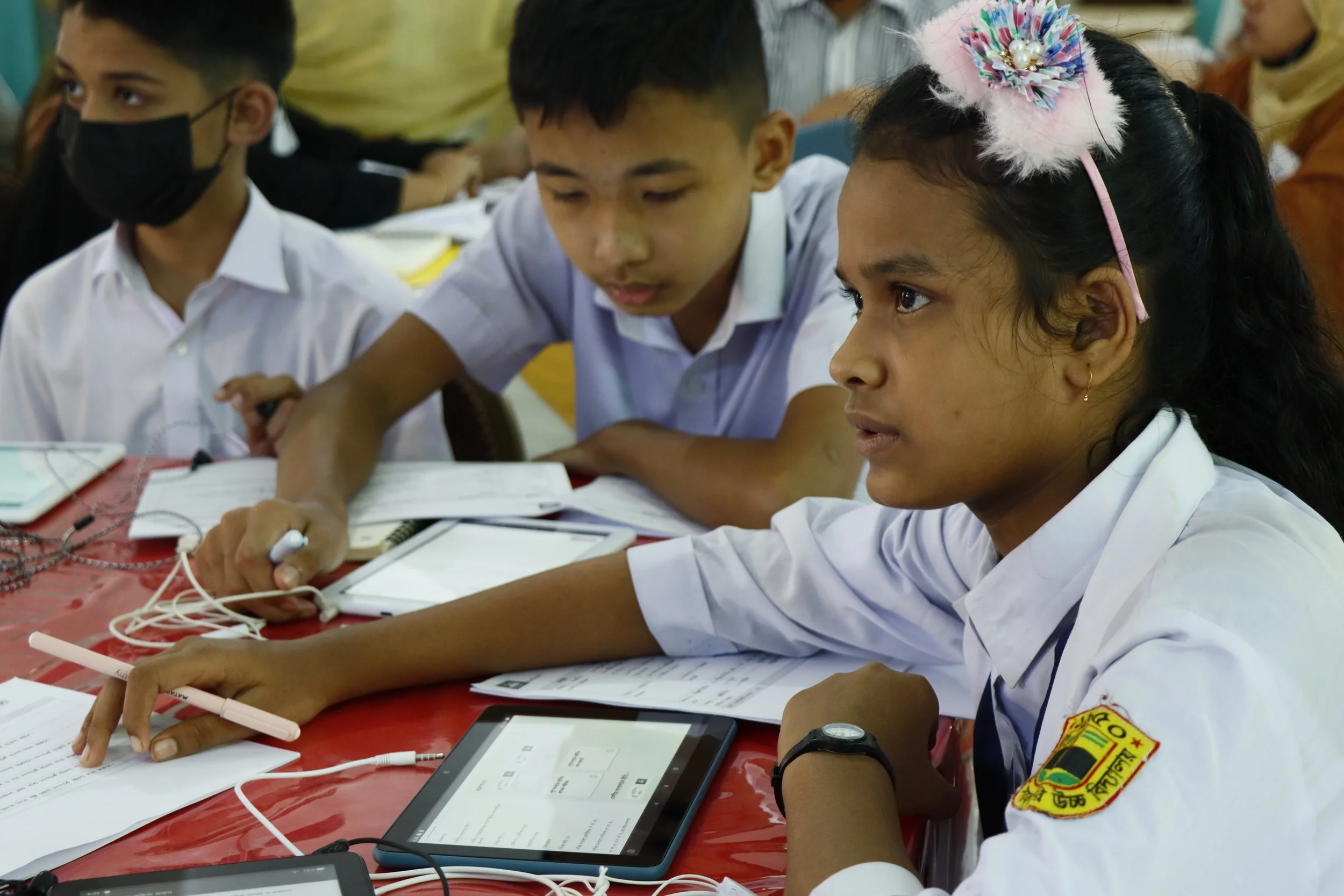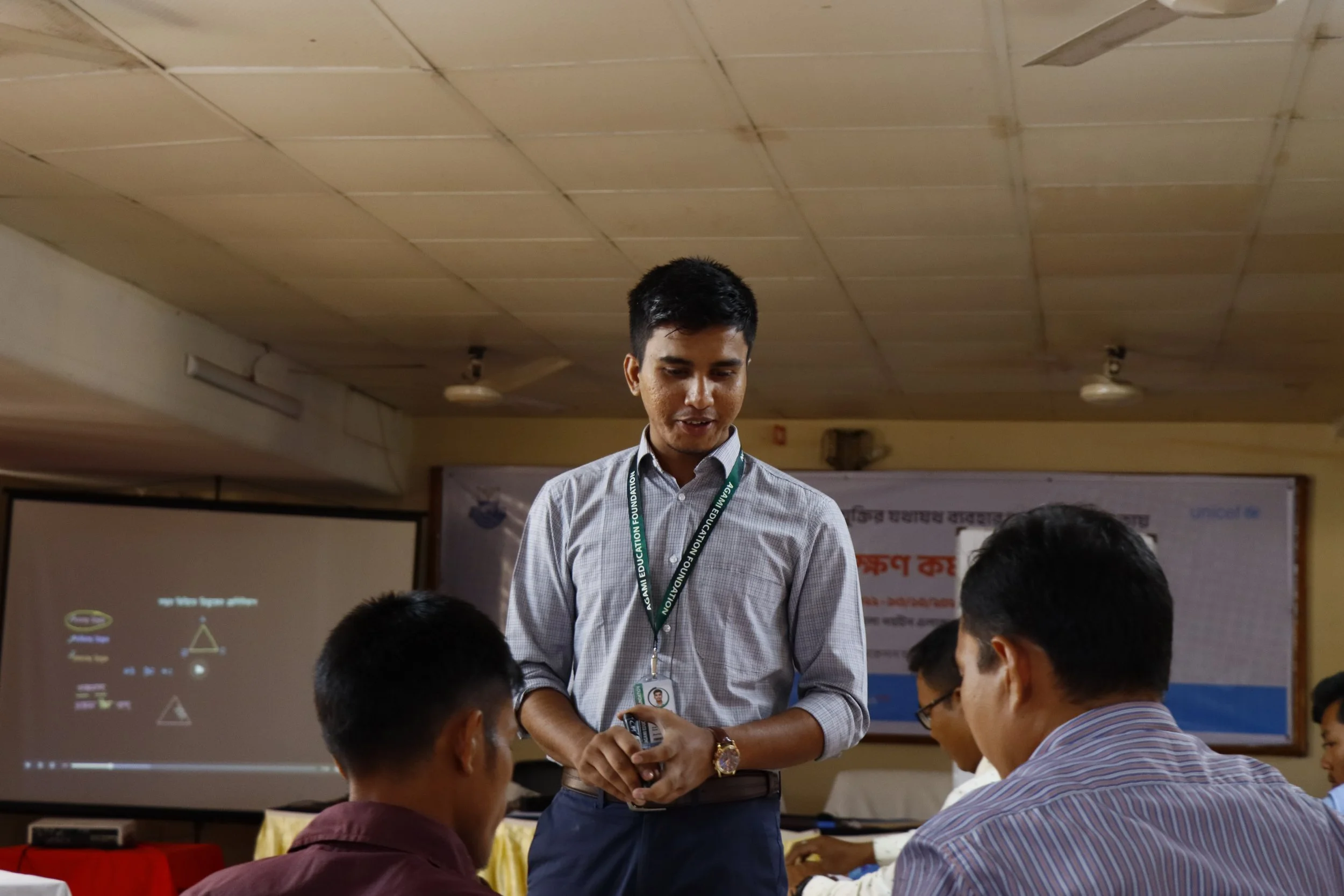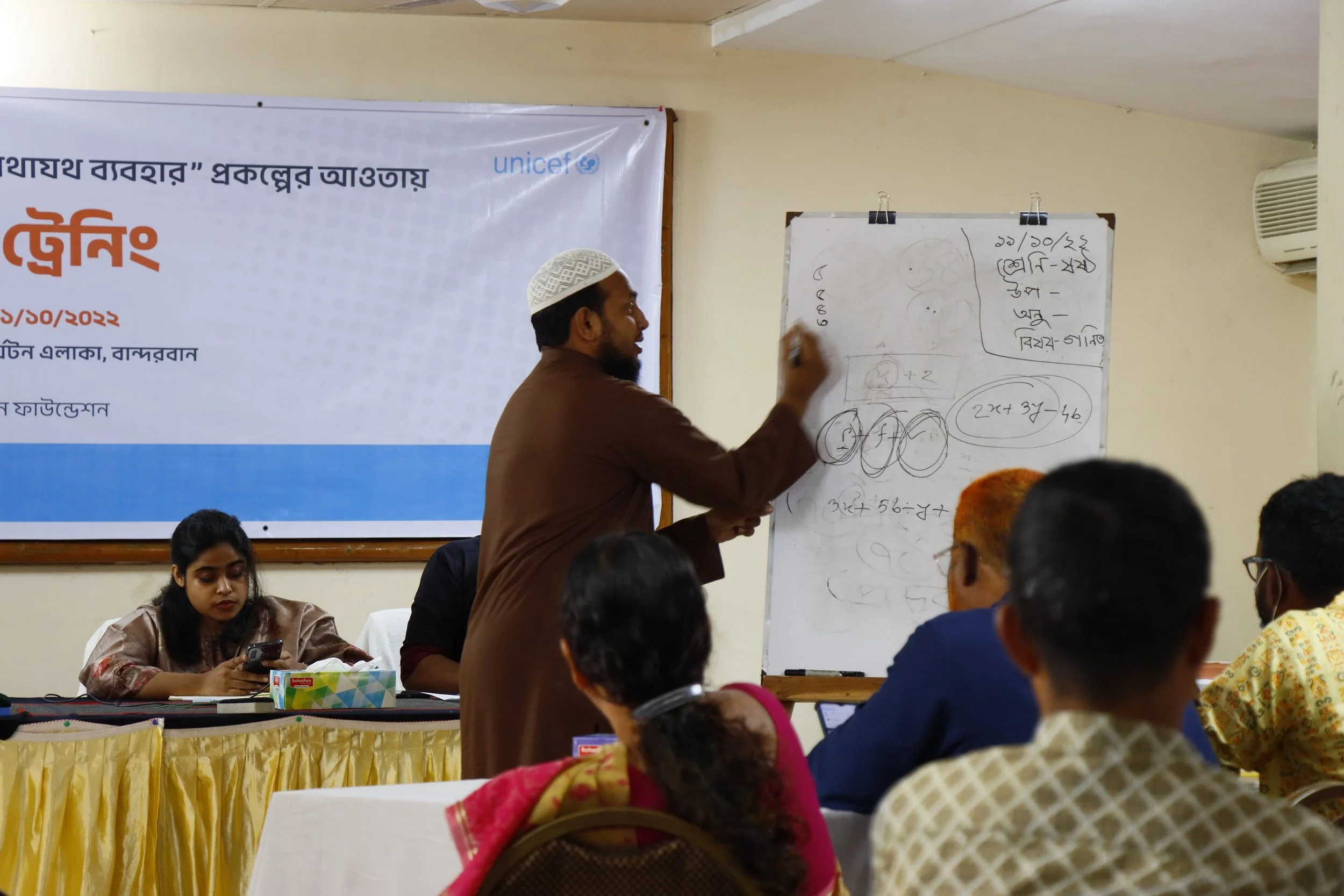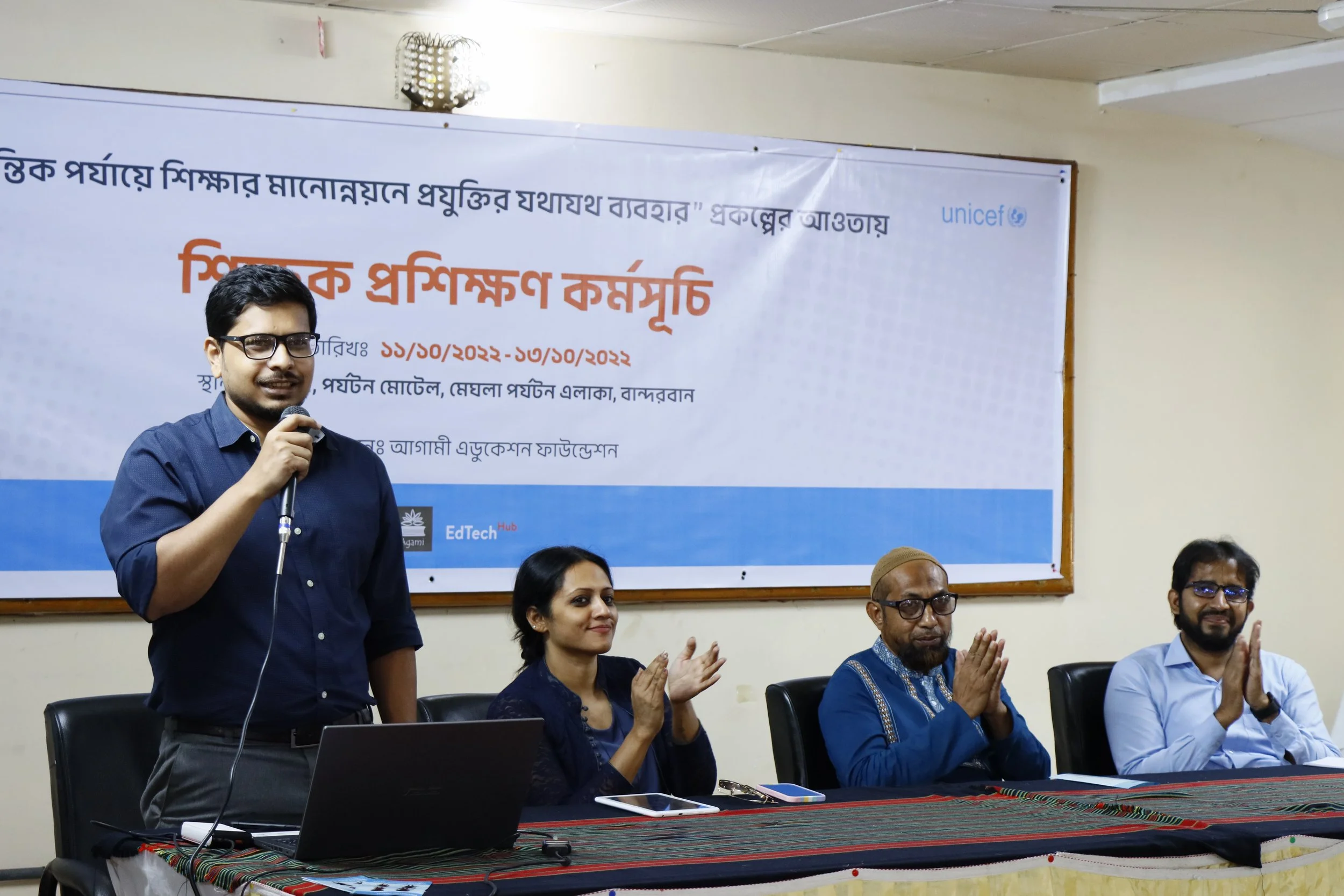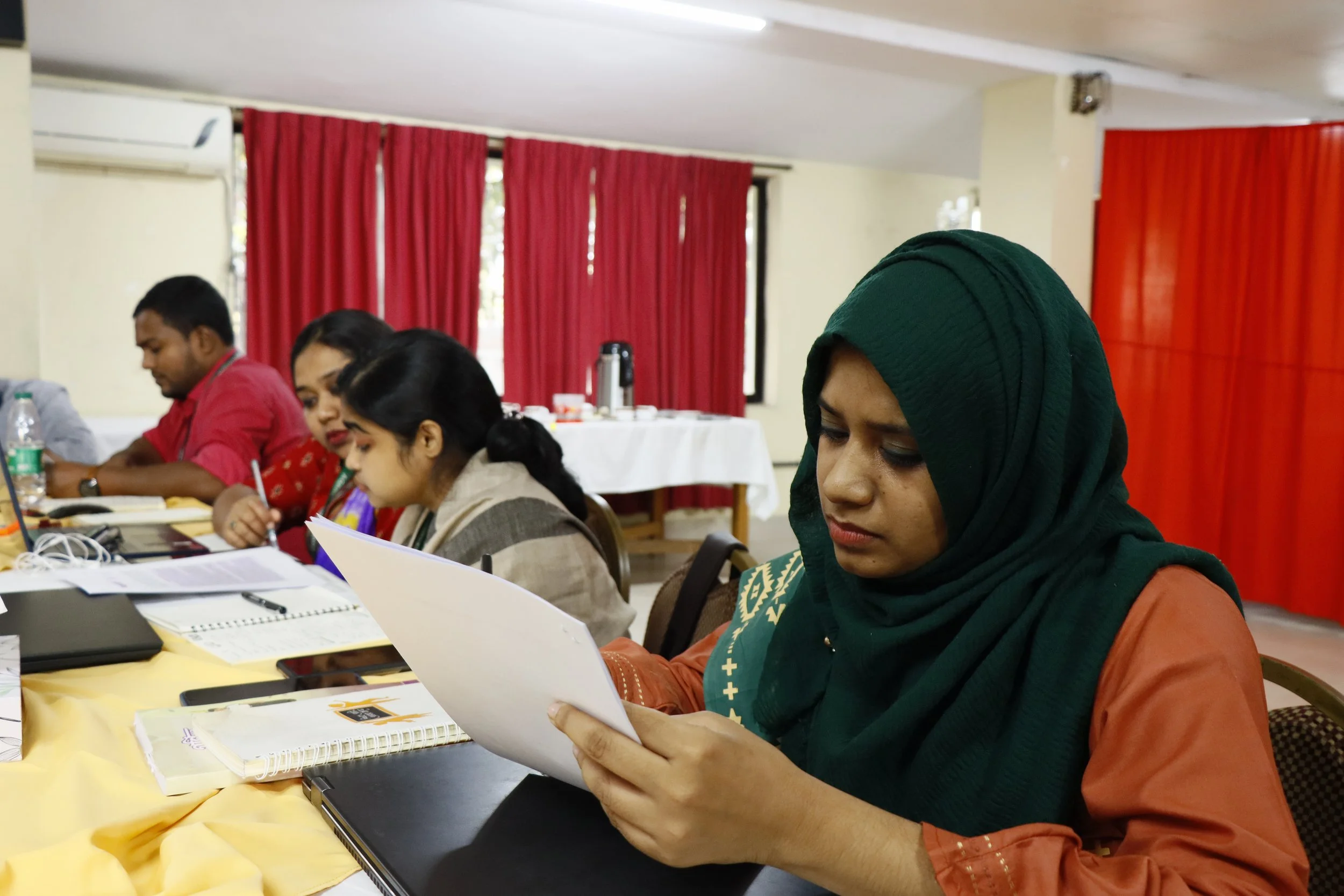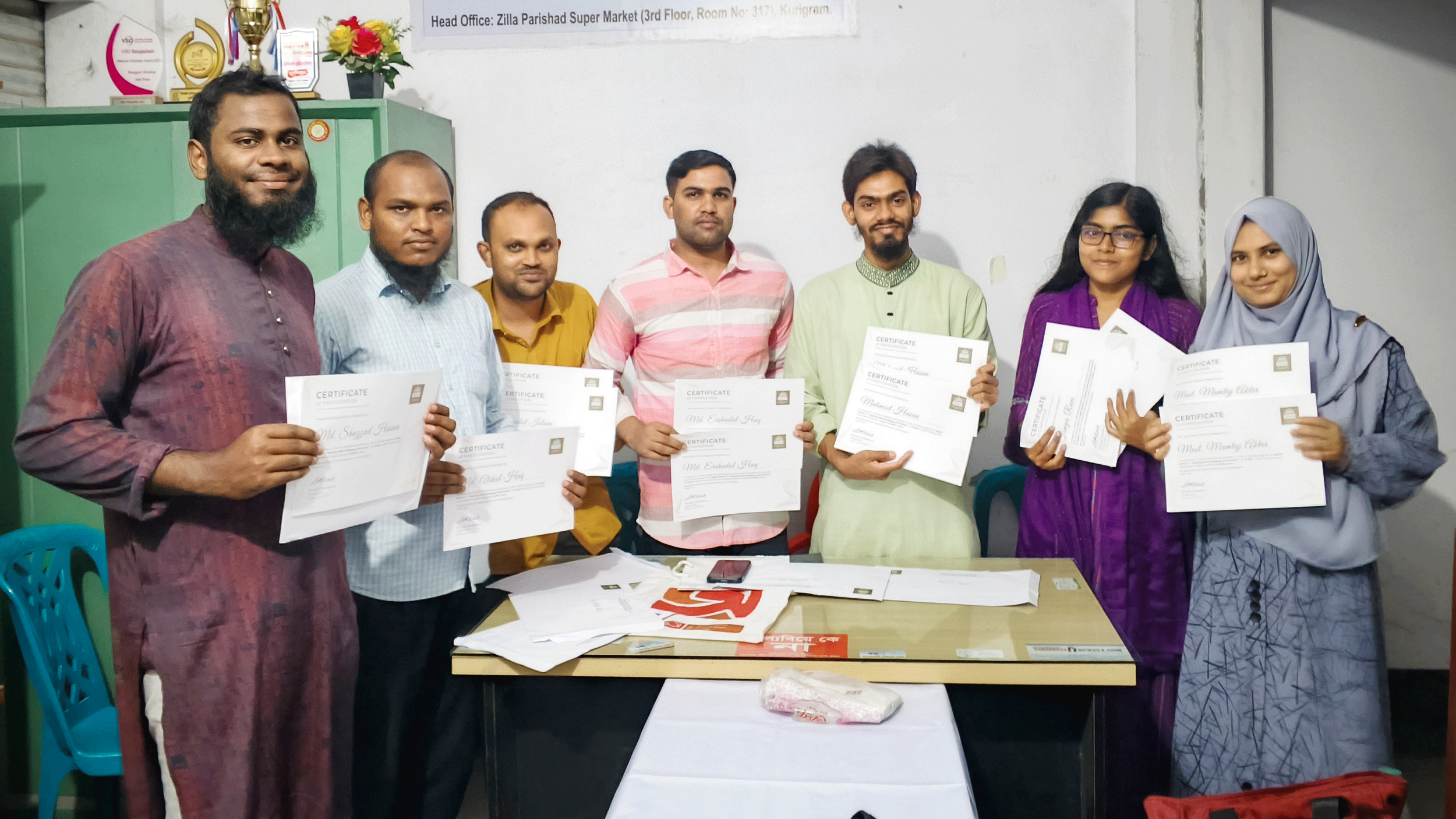Unicef Agami Partnership
In response to the severe learning gaps identified in Bandarban - a district persistently lagging behind in national education indicators - UNICEF and Agami Education Foundation launched a collaborative pilot to improve foundational learning through appropriate technological interventions. Designed around findings from the National Assessment of Secondary Students (NASS), the project targeted 31 schools across five upazilas, focusing on sixth-grade mathematics using curated digital content and low-cost offline platforms like Kolibri.
The program introduced three models of tech integration: multimedia-only, tablet-only, and a hybrid of both, supported by comprehensive teacher training, content validation with students and parents, and ongoing field monitoring. Challenges like device literacy, limited electricity, and language barriers were acknowledged and addressed through context-specific solutions. By aligning with government initiatives and involving diverse stakeholders from policy to community level, the project created a replicable and scalable approach to EdTech in marginalized areas.
Early signs of impact - rising student attendance, increased classroom engagement, and improved digital readiness - point toward a sustainable model. The project now stands as a proof of concept for how inclusive, locally adapted technology can contribute meaningfully to equitable education in Bangladesh.
Reach to Teach
To improve sixth-grade math teaching in Bangladesh, Agami EdTech, with support from the A2I program under the ICT Division, developed the virtual course "Reach to Teach: Math Teaching-Learning (Grade 6)." The course was designed to strengthen both subject knowledge and pedagogical skills of secondary school teachers. Drawing from earlier training programs using Khan Academy content, the team identified gaps in teachers’ understanding and addressed them by combining real-life applications, logical reasoning, and interactive teaching techniques. Starting in December 2020, the course was carefully planned, designed, and revised by a dedicated team of educators, led by experts in pedagogy and curriculum. Structured into 11 content modules and a final assessment module, it includes videos, pop-up quizzes, and supplementary materials. Hosted on Muktopaath, the course offers teachers a clear understanding of curriculum goals, classroom methods, and digital tools. Ultimately, it aims to transform math teaching into a more engaging, effective, and confidence-building experience.
The Community Led Academic Support Program (CLASP)
The Community Led Academic Support Program (CLASP) by Agami EdTech was a pilot distance-learning initiative designed to enhance math education for students in Kurigram and Lalmonirhat through trained community volunteers. Targeting grades 6 and 7, the program engaged 14 undergraduate volunteers to support students beyond school hours. Volunteers, many with no prior pedagogical training, received structured online instruction over two quarters. Despite challenges—flooding, poor internet, limited devices, and curriculum unfamiliarity—eight participants completed the training. The course evolved from live sessions in Q1 to a flipped learning model in Q2, offering flexibility and deeper engagement. Assessments showed improved volunteer knowledge and highlighted student learning gaps, particularly in foundational math skills. Strengths included accessibility, scalability, and cost-effectiveness, but the lack of in-person contact and inconsistent participation posed challenges. CLASP served as a valuable experiment in remote teacher training, providing insights for scaling future initiatives and ensuring continuity of learning in underserved communities.
AMAR GHORE AMAR SCHOOL
In response to the COVID-19 school closures in 2020, the Government of Bangladesh launched the televised learning program “Amar Ghore Amar School” to ensure continued education. Partnering with the Ministry of Education and ICT Division, the Agami EdTech team developed 156 video lessons across five subjects for grades 6 to 10. These interactive lessons were broadcast on Sangsad TV and uploaded on DSHE’s YouTube channel, reaching over 70% of households. Despite strict lockdowns, around 80% of the videos were produced remotely using Agami’s in-house studio setup. Each video followed a structured format including topic announcements, lesson delivery, recaps, and homework. A rigorous multi-stage review process ensured quality and alignment with the national curriculum. Led by Dilruba Choudhury and B.M. Fazley Rabbi, the project engaged core team members, consultants, and freelancers for scriptwriting, video production, and editing. The initiative successfully brought school into homes, ensuring learning continuity during the pandemic.


